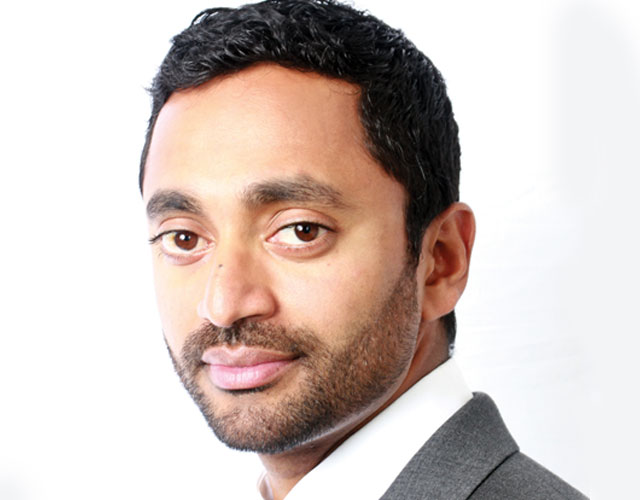
Four-year-old Silicon Valley-based venture capital firm Social+Capital Partnership plans to invest over $1 billion in Indian companies in sectors such as financial services, energy, infrastructure and agriculture, its founder Chamath Palihapitiya said at a press meet in Bangalore.
Sri Lanka-born 38-year-old Palihapitiya, who served as vice president of Facebook and was responsible for user growth from 2007 to 2011, had overseen a steep rise in the social network’s user base from a few millions to close to a billion when he quit the firm.
Given his former position in Facebook, he can be easily counted as one of the several multi-millionaires created following the Facebook IPO three years ago.
“Over the next 10 years, we (would) really like to get $1 billion invested in India. If we see some early traction, you will see that number rapidly going up,” he said.
Social+Capital Partnership had started engaging with the Indian startup ecosystem through its investment in the maiden fund of Bangalore-based early investor Prime Venture Partners (which was previously AngelPrime) in 2011.
“We partnered with the AngelPrime more as a test so that we can learn the Indian ecosystem,” Palihapitiya said.
“Through AngelPrime -1 we were introduced to Ezetap. It seemed quite interesting. We did Series A. In the last year, business has absolutely exploded as they decided the business has to be fundamentally Indian in nature,” he said.
Social+Capital Partnership put in $20 million out of the nearly $24 million (Rs 150 crore) Ezetap has raised recently and Palihapitiya became the chairman of the payment solutions startup.
“We have decided we should not be investing in Indian versions of American companies,” he said about the investment strategy that the firm will adopt in India.
Social+Capital Partnership has invested in over 80 companies in the US and has had over a dozen big exits, including Survey Monkey. It recently raised $600 million. Palihapitiya said the VC firm has earned 40-60 per cent return for its investors.
About the investments that it has made in the US, he said, “We really focused on industries that are trillion dollar market and that are largely not affected by technology. Because we felt that using technology will be a way to rebuild these massive industries. We have been investing in healthcare, education and financial services.”
“Our goal is not return. That is just a by-product of what change we could bring in,” he added.
Palihapitiya also shared his style of working with investee companies: “We don’t do board meetings. We hate board meetings. Board meetings can happen over emails. We do product reviews. We work with founders on product market fit, product strategy and scale.”
Palihapitiya believes companies in financial services such as Ezetap can benefit from Aadhaar, the Indian government’s unique identity project for citizens, and considers it as a priority sector for future investments in India.
“Aadhaar basically changes financial services. We look at businesses that can leverage this infrastructure to create a more equal playing field for many Indian citizens,” he said.
“We love financial services. I would like to invest in businesses that can get to a billion users. I got Facebook to (a) billion users,” he added.